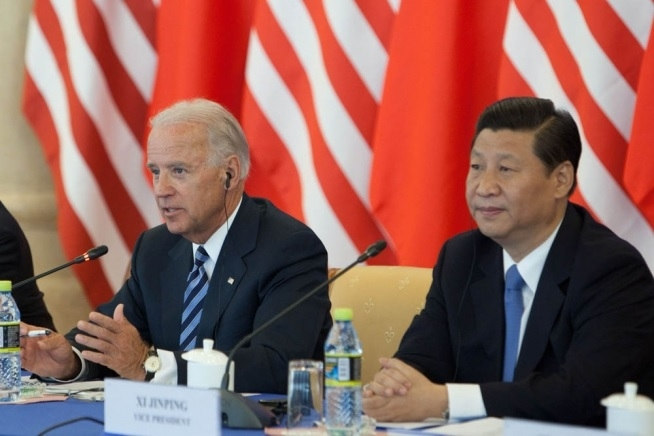A new US Interim National Security Guidance paper has castigated China as "increasingly assertive" while adding that Washington will deepen its partnership with India.
The vision document by the US also says that the country will build a stronger military presence in the Indo-Pacific and in Europe as it builds alliances with like-minded countries.
Released on Wednesday, the 21-page document highlights President Joe Biden’s national security strategy. Biden said the document would, "convey my vision for how America will engage with the world" and guide his administration while Washington begins work on a new National Security Strategy.
The report calls Beijing "the only competitor potentially capable of combining its economic, diplomatic, military, and technological power to mount a sustained challenge to a stable and open international system".
It also points to Russia as an adversary but focuses more on China and the multifarious challenges it poses to the democratic world. The report acknowledges that China has become a formidable power and the main opponent.
In a pragmatic way the report also looks at the fact that the US wouldn't be able to restrain China alone. "We can do none of this work alone. For that reason, we will reinvigorate and modernise our alliances and partnerships around the world," the report says.
It adds that the US will have to "promote a favorable distribution of power to deter and prevent adversaries from directly threatening the United States and our allies, inhibiting access to the global commons, or dominating key regions."
"Our democratic alliances enable us to present a common front, produce a unified vision, and pool our strength to promote high standards, establish effective international rules, and hold countries like China to account," it said.
The report draws attention to China's 'One Belt, One Road' or the Belt and Road Initiative (BRI) initiative that seeks to link up continents through rail, road and port infrastructure, but ends up trapping developing nations under mountains of debt.
As part of a solution to this debt-trap policy by China, the report says "We will support China's neighbours and commercial partners in defending their rights to make independent political choices free of coercion or undue foreign influence. We will promote locally-led development to combat the manipulation of local priorities."
Overturning predecessor Donald Trump's inward looking foreign policy, Biden said: "America is back. Diplomacy is back. Alliances are back. But we are not looking back." In a notably significant comment, he said: "Our success will be a beacon to other democracies, whose freedom is intertwined with our own security, prosperity, and way of life."
The report, which is very comprehensive, also talks about economic recovery, fighting the coronavirus pandemic, climate change, challenges to democracy and also threats from terrorrism – all possible issues that confront its national security.
Just hours before releasing the report, Secretary of State Antony Blinken had also spoken about the Biden administration's foreign policy. Talking on 'Foreign Policy for the American People' he had portrayed China as the main challenge to the world and had stressed building alliances to meet that challenge.
About China, Blinken said: "Our relationship with China will be competitive when it should be, collaborative when it can be, and adversarial when it must be."




















